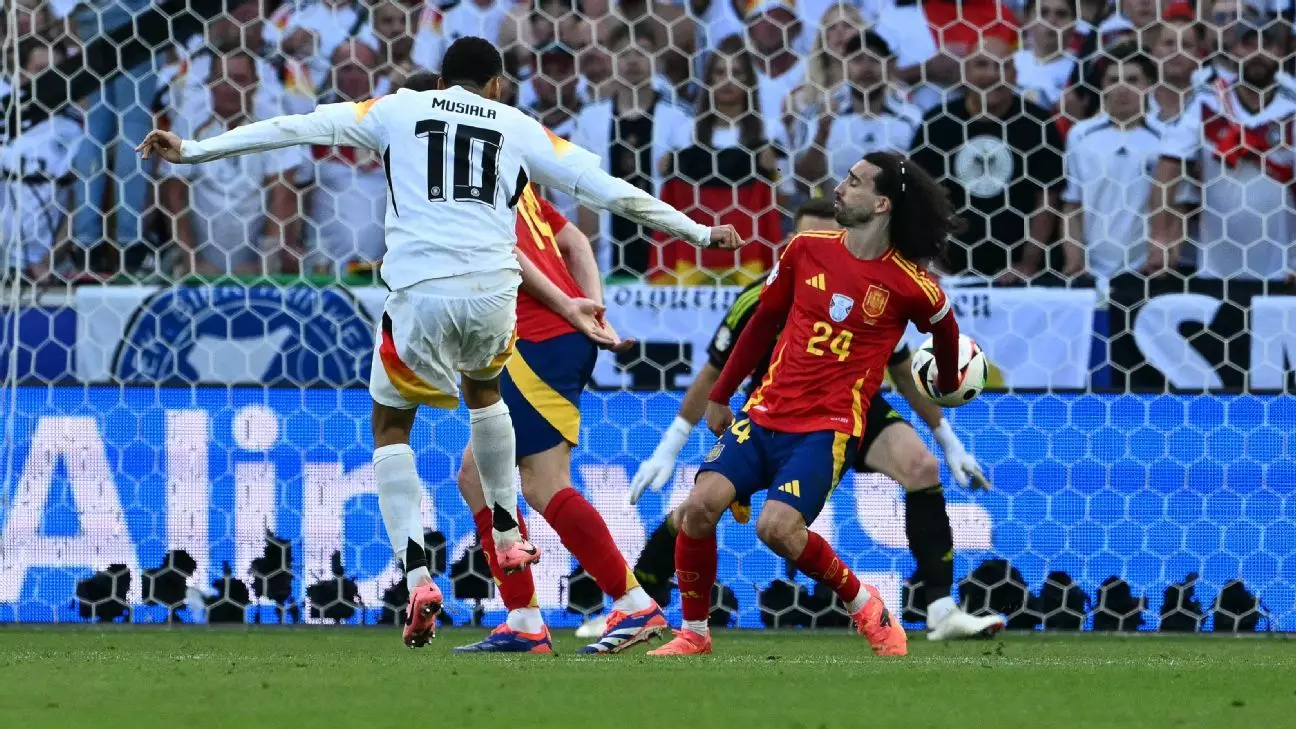The Euro 2024 tournament brought its share of exhilarating moments, but equally contentious officiating decisions that raised eyebrows and ignited debates. A particular incident involving Germany’s quarterfinal match against Spain has caught the attention of football analysts and fans alike. In a recent report by UEFA’s Referees’ Committee, it has emerged that Germany should have been awarded a crucial penalty for a handball that went unpunished, stirring discourse on the standards of officiating in high-stakes matches.
The Incident Explained
The pivotal moment occurred in the dying minutes of extra time when Jamal Musiala’s strike inadvertently struck Marc Cucurella’s arm. With the score level at 1-1 and tensions simmering, the stakes could not have been higher. Germany’s players erupted in disbelief as referee Anthony Taylor opted against pointing to the spot, having judged that Cucurella’s arm was positioned close to his body. This decision was further corroborated by VAR official Stuart Attwell, leading to frustration and confusion among German players who felt that the offense warranted a penalty.
The handball rule’s complexity often lies in its interpretation; while players assume a degree of responsibility for their positioning, there is often ambiguity surrounding what constitutes a deliberate handball. UEFA’s Referees’ Committee has since clarified the situation, stating that the incident fell under circumstances warranting a penalty, thus retroactively validating the German players’ protest.
This controversial decision transformed what should have been a critical moment of glory for Germany into a painful memory, as Spain went on to score a late winner through Mikel Merino’s goal in the 119th minute. Spain’s triumph sealed their place in the finals, where they eventually lifted the trophy by defeating England. The ramifications of such officiating decisions extend beyond the match itself; they can alter the trajectory of national teams and influence the emotional landscape of fans and players alike.
The fallout from this incident raises profound questions about the standards of officiating at the highest levels of football. While technology like VAR aims to minimize human error, the reliance on subjective interpretation by referees still leaves room for controversy.
Roberto Rosetti, UEFA’s chief refereeing officer, had previously set the stage for how handball should be approached, showcasing instances where players were deemed not to have committed a foul due to their arm positioning. This inconsistency between stated guidelines and on-field decisions only adds layers of complexity to the discourse about officiating standards. As a governing body, UEFA must confront these discrepancies to ensure results are determined by skill and fair play, rather than misinterpretations of the rules.
The Euro 2024 quarterfinal between Germany and Spain serves as yet another illustration of the critical intersection between officiating and the beautiful game. With the increasing complexity of the rules, it is evident that the discourse surrounding refereeing standards must evolve alongside the sport itself. Future tournaments may require a reevaluation of how officials are trained and how rules are interpreted, lest the integrity of the game continue to be held under scrutiny.

